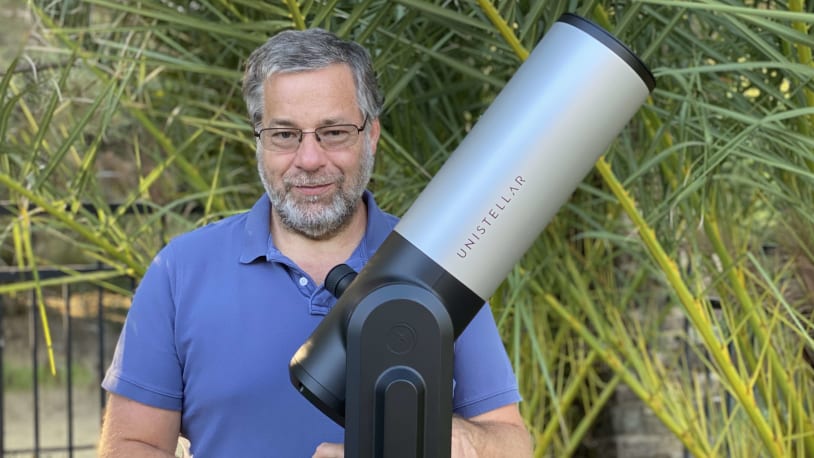
Smart telescopes offer a ‘transformative’ experience for citizen scientists
Scott Kardel is seeing the night sky in a whole new way.
An astronomy professor at Palomar College in San Marcos, California, Kardel received his first telescope at 10, and has enjoyed stargazing ever since. At the start of the COVID-19 pandemic, Kardel bought a Unistellar smart telescope, which is operated through a smartphone app. It has an electronic eyepiece that delivers more precise images, and compared to a traditional telescope, “It is just transformative,” Kardel told The Week.
During remote learning, Kardel would connect to Zoom and show his students what he was observing through the telescope from his backyard. “They could talk to me and interact and ask questions,” Kardel said. “It was quite amazing.” Being able to share live views of the sky with people at their own homes was “something I never imagined you could do with a telescope,” he added. “It opens up all kinds of new opportunities for teaching.”
It also makes it easier for amateur astronomers to turn into citizen scientists. Unistellar users can collect astronomical data and submit it to the SETI Institute, which then takes these scientific observations and analyzes them. In September, Kardel and several other Unistellar users from around the world observed and tracked the Dimorphos asteroid before, during, and after it was hit by NASA’s Double Asteroid Redirection Test (DART) spacecraft. The SETI Institute used their observations to measure the mass of dust that came off Dimorphos after DART slammed into it, and confirmed the asteroid was nudged enough to change its orbit.
Kardel and 30 other citizen scientists are listed as co-authors of the research paper “Light Curves and Colors of the Ejecta from Dimorphos after the DART Impact,” recently published in Nature. To be named in such a prestigious journal is “pretty exciting,” Kardel said, and he thinks getting more people involved in science “at any level is a good thing. It’s important for an individual to contribute something that makes you feel good about yourself and also contribute to the general understanding of asteroids and comets and exploding stars.”
Scott Kardel is seeing the night sky in a whole new way. An astronomy professor at Palomar College in San Marcos, California, Kardel received his first telescope at 10, and has enjoyed stargazing ever since. At the start of the COVID-19 pandemic, Kardel bought a Unistellar smart telescope, which is operated through a smartphone app.…
Scott Kardel is seeing the night sky in a whole new way. An astronomy professor at Palomar College in San Marcos, California, Kardel received his first telescope at 10, and has enjoyed stargazing ever since. At the start of the COVID-19 pandemic, Kardel bought a Unistellar smart telescope, which is operated through a smartphone app.…